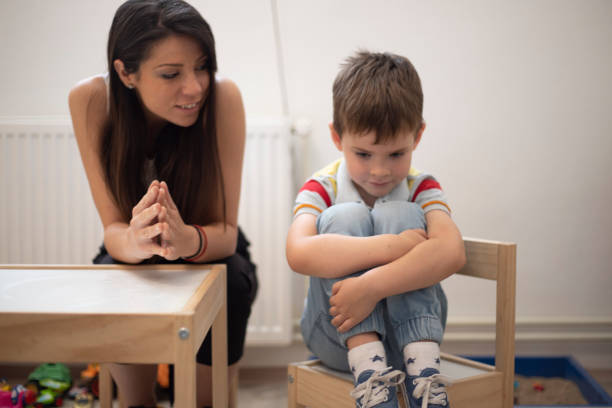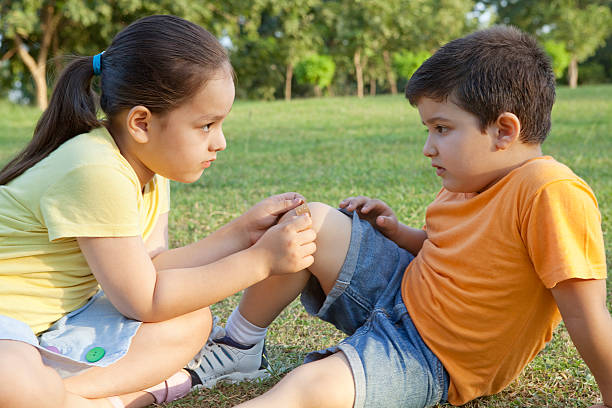Parenting can be challenging, especially when it comes to disciplining and punishing your child. While punishment may seem like the quickest way to correct behavior, it can often lead to resentment and fear. It usually doesn’t teach the underlying lessons you want your child to learn.
Disciplining children is one of the most challenging. That’s why I want to take you through 10 alternative punishments you can give your children when they misbehave.
1. Positive Reinforcement

Rewarding good behavior can be more effective than punishing bad behavior. Praise and reward your child when they complete their chores or display good manners. This encourages them to repeat these positive actions. It also encourages them to always want to be of good behavior.
2. Family Meetings

Regular family meetings can be a great platform for discussing issues and setting expectations. Use these meetings to talk about behavior, set family rules, and allow children to express their feelings and opinions. This gives them a sense of belonging and mutual respect. It also allows you, as a parent, to know where the child is falling short of the family rules and helps you adjust.
3. Empathy and Understanding

Understanding the reasons behind your child’s behavior can help you address the root cause rather than just the symptoms. Ask questions to understand their feelings and motivations behind what they did. Validate their emotions and help them find appropriate ways to express themselves. With this, you can relate to whatever they’re feeling.
4. Teaching Emotional Regulation

Help your child understand and manage their emotions through age-appropriate techniques and activities. Teach deep breathing exercises, mindfulness, or using words to express feelings. Encourage your child to say, “I’m feeling frustrated because…” instead of acting out. Children act on very little things and sometimes want to be understood in every situation. Expressing how they feel makes them calm and explains why they acted inappropriately.
5. Setting Clear Expectations

Communicate your expectations and the reasons behind them to help your child understand what is acceptable and unacceptable. Explain why they need to clean up their room and the benefits of a tidy space, setting a clear standard for cleanliness. Show patience and kindness in your interactions, and your child is more likely to emulate those behaviors. For instance, you can say, “We need to clean up before bedtime because it helps us find things more easily in the morning,” or “We speak kindly to each other to make everyone feel respected.”
6. Logical Consequences

Logical consequences are directly related to the misbehavior and help children see the connection between their actions and the outcomes. If they draw on the walls, they help clean it up. If they break a rule about screen time, they lose some screen time the next day. If they break a toy by being careless, they don’t get a replacement immediately. They learn to take care of their belongings and become more responsible.
7. Natural Consequences

Allow your child to experience the natural consequences of their actions, provided they are safe. This helps them understand the impact of their behavior. If they refuse to wear a coat, they might feel cold. If they don’t clean up their toys, they might not be able to find their favorite ones later. If they forget their homework, they face the teacher’s response, teaching them responsibility and the importance of being prepared.
8. Calm Down Corner

Create a calming space where your child can go to relax and regain control of their emotions. Fill the corner with soft pillows, books, and calming activities like coloring or sensory toys. Encourage your child to use this space when they feel overwhelmed or start to misbehave. This makes them calm and relaxed in the way, and by the time they come out of there, they are calm.
9. Teach Empathy

Help your child understand the impact of their actions on others. Talk to your child about how their behavior affects others. Encourage them to consider others’ feelings and to practice empathy in their interactions. You can also take their favorite toys from them whenever they talk to people rudely. Or refrain from buying their favorite snack from them anytime they look down on someone.
Also read about:
10. Problem-Solving Together

Involve your child in finding solutions to problems. This empowers them and teaches them to take responsibility for their actions. This is a suggested question you can ask, “How do you think we can make sure your toys are picked up every night?” or “What could you do differently next time?”
Using these positive alternatives to punishment helps build a strong, respectful relationship with your child while teaching them important life skills. By focusing on understanding, communication, and collaboration, you can guide your child toward better behavior without the negative effects of punishment. Embrace these strategies to foster a nurturing and supportive environment where your child can thrive.
Mary Dickson
Mary Dickson is a versatile professional with over a decade of experience driving innovation at the intersection of technology, marketing, and female empowerment. She is currently the Business Development Manager at GP Business Consulting serving as Lead Consultant with CBI -Netherlands Enterprises Agency. With a background in marketing she’s worked in different roles cutting across HR, Sales, Business Development and Marketing over the past 14 years in the Tech space. She has a keen interest in Digital marketing especially social media and has spearheaded over 50 training programs geared towards training women led business owners and young girls, equipping them with digital and simple tech skills. She has also consulted for companies and institutions across sectors, helping them optimize content, creation, ad management, customer engagement, and automation. She is the powerhouse behind the WeMompreneurs community, which supports mothers in business through training, networking, consultancy in digital tools. Mary is the co-author The Fruit of the Spirit (a children's book). She holds a BSc.Management with Computing and a MSc. Strategic Management and Leadership. She is the Vice Chair , Women’s Affairs of the Ghana Chamber of Young Entrepreneurs and a member of the Advisory Board of Prime HER ( NGO)




